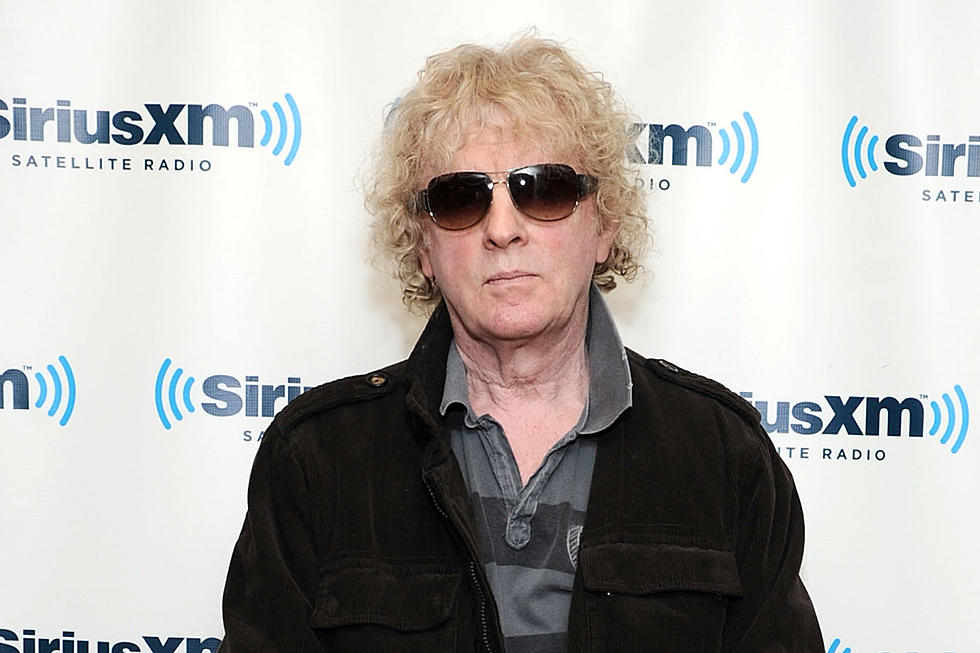Shaun Cassidy, ‘Once Bitten, Twice Shy’ – Terrible Classic Rock Covers
It's tough out there for a fading teen idol.
Building any kind of lasting success in the music business is an almost impossible task. Even the greatest artists have suffered setbacks and endured moments when it seemed like their careers might be over, because it's hard enough to stay in touch with the muse long enough to craft a body of work -- being lucky enough to continually release music that resonates with your audience is an even trickier feat. And it's even harder for the singers whose careers have depended on the passionate whims of younger listeners, because as we all know, kids grow up -- and they often leave their childish things behind in the process.
Shaun Cassidy is a perfect case in point. A member of the teen idol-spewing Cassidy clan that also produced his older half-brother David, Shaun enjoyed a string of cross-platform successes during the '70s, releasing a series of hit singles and albums while starring in 'The Hardy Boys Mysteries.' But as popular as Cassidy was at his peak, it ended incredibly quickly; in 1977-78, he put four singles and three albums in the Top 40, but by 1981, his recording career was finished.
But Cassidy didn't exactly go quietly. Faced with the failure of the 'Room Service' and 'That's Rock 'N' Roll Live' albums in 1979, he decided to take a brave gamble, abandoning his signature sound (syrupy sweet bubblegum pop, heavy on covers like 'Da Doo Ron Ron') and enlisting Todd Rundgren to produce a New Wave-influenced record filled with songs by established -- and decidedly non-teenybopper -- acts like David Bowie, Talking Heads and Pete Townshend. The result: 1980's thoroughly bizarre 'Wasp' album.
Rundgren, a busy recording artist as well as an in-demand producer at the time, drafted members of his band Utopia for the sessions, which had the (probably purely intentional) effect of making 'Wasp' sound like a Utopia record with a different frontman. All of which was well and good -- Cassidy's sound was certainly due for a facelift -- but whoever picked the songs wildly overestimated Cassidy's capabilities as a vocal interpreter. His enthusiasm is obvious on cuts like his cover of Bowie's 'Rebel, Rebel,' but so is his exceedingly loose grasp of the material. Even at its best, 'Wasp' presents a tragic portrait of a singer in way over his head.
The record's closing cut, a thuddingly clunky version of Ian Hunter's 'Once Bitten, Twice Shy,' represents a particular low point, with Rundgren making a vain attempt to split the difference between giving the song a New Wave makeover and staying true to its shout-along rock roots. Lost in reverb, Cassidy sounds like a kid playing dress-up at a karaoke convention, but it's hard to blame him for not knowing how to navigate an arrangement this cluttered and production this messily arid. You know you're in trouble when your version of a song is outclassed by a Great White cover.
A thorough failure, 'Wasp' sent Cassidy's recording career into permanent deep freeze. He's only resurfaced as a pop singer once since it tanked -- to record a medium-sized European hit with the 1989 single 'Memory Girl.' But unlike a lot of tragic teen idols, he quickly moved on, forging a successful career in television production and generally proving that for himself, as well as his fans, his past as a pop star was just a phase.
Listen to Ian Hunter's 'Once Bitten, Twice Shy'
More From Ultimate Classic Rock









